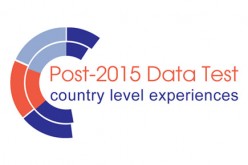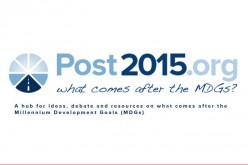Whither a revolution? Three observations in response to the Roadmap for a Country-led Data Revolution.
Written by Florian Krätke, Economist, Ministry of Finance and Economic Planning (MoFEP) (floriankratke@gmail.com) in response to PARIS21’s public consultation.
Discussions on the ‘data revolution’ have inflated what was previously a fringe debate. A much larger range of stakeholders are now asking for more, better, disaggregated and frequent data on all parts of public life post-2015. In response, new financing models and technological solutions to capacity and data gaps will undoubtedly be found, and have already started to spring up.
PARIS21’s Road Map for a Country-led Data Revolution is the result of many months’ canvassing of such needs and solutions. Aside from some highfalutin visioning language, the document does a good job sketching out where the opportunities lie to capitalise on the current momentum behind improving data worldwide.
However, if the aim is to focus attention on how to enhance production and usage of data and statistics to inform both national and international policy-making towards sustainable development, then a few fundamental questions remain unaddressed. As Morten Jerven noted, there is still little evidence that better data – and, by extension, statistics – leads to better policy decisions, particularly at the national level.
The Roadmap notes that: “in too many countries statistical agencies and what they do seem to be undervalued and under-appreciated”. Little attention is given as to why this is the case, beyond the platitudes of lack of financing and political will. Without better understanding the reasons why some countries’ administrations chose to invest in data and statistics, whereas others didn’t, this latest in a long line of international commitments to better data and statistics is a paper tiger.
Myself and Bruce Byiers at the European Centre for Development Policy Management (ECDPM) were recently asked to look at this and other political economy issues as part of PARIS21’s ‘Informing the Data Revolution’ project. Our report is an attempt to gather and sort the “why’s” behind the issues the data revolution intends to solve.
The report is only a first attempt at a comprehensive assessment that these issues deserve, but it already offers three choice observations on the Roadmap:
1.Official data and statistics are as political as they are technical. Historically, rulers have used data and statistics on the assets which they controlled – land, funds, people – as a means to direct the extraction of resources. ‘Being counted’ was almost equivalent to ‘being taxed’ or ‘being conscripted’. The gathering of data and production of statistics can play an important part in processes of social integration, conflict resolution and the forming of social contracts. For instance, population censuses integrating heretofore excluded social groups (particular ethnicities, religions or nationalities) provide a signal to such groups that they are being recognised and considered by the state.
A Road Map for a Data Revolution should not rest on the logic that more data is better. Rather official data and statistics are tools that can equally be used for successful targeted state-led development, as for oppressive state intelligence. The extent to which data and statistics play a positive role in societies depends on political bargains made as well as the constellation of social groups, local and national authorities as well as private and international actors.
2. Data and statistics availability is unlikely to be the watershed for improved statistical capacity and policy-making in developing countries. One comes away from the Road Map with the impression of an agenda for adopting further technological solutions and innovations to improve data availability. The amount of data available to governments has increased rapidly, also thanks to 25 years’ worth of commitment and initiatives by the international community. There are few signs that policy-making has improved significantly as a result.
Whereas the Road Map promotes ‘big data’ and technological solutions to tap into it as a means to by-pass some of the political bottlenecks of producing better data and statistics, political considerations remain primal in data and statistics being used for policy-making. Effectively, this means that ‘Big Data’ and other support mechanisms being discussed will need to be examined in terms of i) how they align with existing practices, incentives and power balances or ii) to what degree they alter the power relations and incentives.
3. A revolution is – and should be – an iterative exercise. The rhetoric of the campaign for a data revolution has the hallmarks of a ‘big bang’ reform agenda. However, to note that all it takes for innovations to take hold is time, is to ignore the fact that such innovations, especially within government, require concerted effort and uptake by like-minded and supported reformers.
A better understanding of the systematic reform efforts that drive and constrain the production and usage of official statistics at the national level – particularly the objectives of key actors in developing countries – are important for informing the policy initiatives, projects and programmes to tackle data and statistics production and usage.
To the extent that new initiatives build on existing (informal) practices, this is more likely to succeed than approaches that assume current practices can be quickly altered. This thinking should be at the core of each of the 139 data revolutions aspired to.
A data revolution will only be effective in overcoming the decades-long challenges faced in improving official statistics to the degree that they take account of political reality. This requires rethinking how data and official statistics production and usage can be supported, rather than how much. Those stakeholders ready to think and work politically will have a natural advantage in this.
Read the full discussion paper here.
1,518 total views, 3 views today










